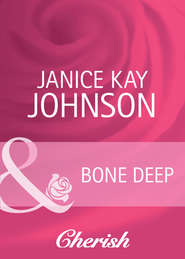По всем вопросам обращайтесь на: info@litportal.ru
(©) 2003-2024.
✖
Maternal Instinct
Автор
Год написания книги
2018
Настройки чтения
Размер шрифта
Высота строк
Поля
It seemed to her that Hugh hesitated as well. His back looked rigid when he went ahead of her. Nell took a deep breath and made herself buck up—she was a police officer. Which didn’t prevent a wash of relief when she saw that the receptionist’s body no longer slumped over her broad desk.
A bagged body on a gurney was waiting to be wheeled onto the elevator.
“What’s the count?” Hugh asked a lieutenant, nodding at the gurney.
“Twelve.” His mouth twisted. “Another one died this morning at Mercy.”
Nell let out a breath. To have miraculously survived the carnage and then die on an operating table or in a hospital bed seemed unbearably cruel.
“Three others are in critical condition.”
“All for what?” Hugh asked. He made a sound in his throat. “Let’s get busy.”
They spent the next hours running tape measures, sketching rooms and hallways and the angles at which bodies had fallen or weaponry had been abandoned. No mysteries in the blood spatter patterns—all were consistent with the victims having been shot with automatic fire at close range.
Nell remembered to call Kim—via the boyfriend’s cell phone—to inform her that she wouldn’t be home for dinner.
“Is Colin taking you out?” she asked.
“Mrs. Cooper said I could have dinner with them,” Kim told her. “We’ll be chaperoned, Mom.”
Nell ignored the sarcasm. “Be sure and thank her.”
“Mo-ther.”
She sighed. “Sorry.”
Her daughter’s voice became tentative. “Are you at the Joplin Building?”
Hugh, waiting a few feet away, watched her, which made Nell edgy.
“Unfortunately.”
“Is it…is it really gross?”
Nell’s gaze was inexorably pulled to the dark stain down the hall. She stripped her voice of emotion. “That’s one way to put it.” She rubbed the back of her neck. “I’ve got to go, Kim. I won’t be in until late tonight. I assume we’ll be back on regular shifts tomorrow.”
“Okay,” Kim said, sounding subdued. “I love you, Mom.”
Tears stung her eyes. “I love you, too.”
Hugh’s astonishingly blue eyes met Nell’s as she stowed her cell phone. “Your kid?”
“Daughter. Kim’s sixteen.”
“Do you have others?”
Was he really interested? She couldn’t imagine.
Nell shook her head.
“You’re divorced?”
“Never married.” Let him make of that what he would.
She felt him studying her, but he didn’t pursue the subject. “I’m glad you can draw better than I can,” was all he said. “I seem to have two thumbs.”
She couldn’t keep a sardonic note from her voice. “Lucky thing women have some useful skills besides empathy.”
“I didn’t say—”
She cut him off. “I know you didn’t.”
The afternoon and evening passed in a blur. Flashes burst on the edges of her vision as the photographers worked. Grey fingerprint powder added its dour presence to the rust-brown stains on the carpet and papered walls. Nell’s head pounded and she worked in dogged silence. One office looked like the next, one hall turned into another. They were going to be here for weeks, she could see already. This was a crime scene of a size so far beyond anything they’d ever managed, it would be a miracle if they were done that soon. And if they didn’t screw up the preservation of evidence.
Not that there’d be a trial, Nell reminded herself wearily. This was all an academic exercise. The killer was dead, already executed by his own hand. So why go through all this?
She knew the answer, of course. At its deepest level, they were after the truth. Without all the puzzle pieces identified and locked into place, they would never have it.
More practically, the possibility still existed that there had been accomplices, or even that Gann had been misidentified and the real killer had walked out with the survivors. Terrified people weren’t the best witnesses. Nell remembered the body outside the elevator upstairs. The man had been middle-aged, middle height, brown haired, ordinary. Bizarrely, considering his mission, he’d worn a business suit indistinguishable from those worn by his male victims. Could a frightened claim rep diving for cover behind her desk be positive that Gann was the one spraying the office with automatic fire?
The captain let them go just before midnight and sealed the building. A smaller cluster of press still camped out on the sidewalk, but he waved his officers toward the lot and faced the oncoming horde. “It’s been a tough two days,” he said. “Sleep in an hour tomorrow. See you in the briefing room at eight sharp.”
“Big of him,” someone muttered behind Nell, on the way to the squad cars.
“I, for one, am going to be damn glad of that extra hour,” Hugh said, close beside her.
“Me, too,” she admitted, stifling a yawn, too tired to care that she could feel him breathing down her neck.
He opened his door, but paused to look back at the dark bulk of the Joplin Building. A crescent moon floated above it. Camera flashes went off as the captain apparently made a brief statement in front.
“I feel like a condemned man,” Hugh said, in an odd voice. “We’re going to spend half our working lives in there.”
She nodded, although he wasn’t looking at her. “The atmosphere is so…oppressive. No, creepy.” She shivered. “They say tragedies can soak into the walls and leave a trace presence. Do you believe that?”
He turned and stared at her over the roof of the car. “No. Damn it, don’t you know better than to let yourself think like that?”
She scowled back. “You can’t tell me this one didn’t hit you hard, too. Why else did you—” She almost strangled herself as she swallowed the rest of that sentence. Why else did you get drunk? Screw me? Forbidden topic.
“Of course it was upsetting.” His brows met in a forbidding line. “Contrary to your opinion of me, I do feel some normal human emotions. But I’ve seen too many crime scenes to start imagining shock and terror soaking into walls, for God’s sake.”
“There are places,” she defended herself.
They were damn near alone in the dark parking lot now.
“This isn’t on the scale of Auschwitz. Let’s not kid ourselves.”
She gritted her teeth. “Then what were you talking about? Feeling like a condemned man?”











